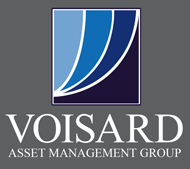If you have been following our blog posts, you may have seen a theme in our answers to frequently asked questions. As with many of the questions we addressed in past topics, our answer to whether to pay off debt or invest is “it depends.” The interest rate being paid on the debt and an individual’s risk tolerance are two important factors used in evaluating this assessment.
Let’s start with the basics. If you elect to make an extra payment on the mortgage, you are essentially guaranteeing yourself an annual return that is equal to the interest rate on the loan. An extra payment on the mortgage reduces the amount you pay interest on each year, and therefore, the saved interest is your return on investment.
Why Interest Rate Matters?
If your mortgage is 3.25%, your annual “return” on the additional payment is low, on averge. If you have outstanding debt with interest of 10%, your extra payment produces a much higher annual rate of return and is therefore a much more attractive investment.
Why Risk Tolerance Matters?
If your alternative to paying down the mortgage early is investing, you must be comfortable with the fact that investment returns are not guaranteed and there is always risk that your investment will decline in value. While investors have achieved positive returns over longer time periods, seeing losses in your portfolio over shorter time frames can still be unsettling.
What Do We Think?
If you have a low interest rate and are comfortable seeing variance in your portfolio balances in correlation to your risk allocation, we would suggest you keep the mortgage and invest the “extra payment.” History has shown that market returns have been higher than current mortgage rates over long time periods. Mathematically, this means that investing should produce a higher return than paying down the mortgage early.
We are not suggesting that paying off the mortgage early is a bad decision, it just may not be the most efficient use of your additional funds. Paying off a mortgage early is still much more constructive than spending these non-earmarked funds or dropping it into a savings account, which would earn close to nothing.
How Much of a Difference Would it Make?
If you were to make extra monthly payments of $500 on your mortgage for 10 years with a 3.25% interest rate, it would produce interest rate savings (otherwise defined as return) of $10,786. Now if this $500 per month was invested and received a return of 7%, your 10-year return would presumably amount to $26,542. This investing scenario creates a $15,750 difference. The longer time periods the monthly payments are made and/or the larger the monthly investment, the larger this difference becomes.
Given the above information, investing before paying off debt isn’t for everyone. Most times in which investing made more sense from a mathematical perspective, we have recommended paying off a mortgage or unsecured debt based on risk tolerance and the individual’s comfortability with debt. If you would like to know how this might apply in your personal circumstances, we would be happy to help.



